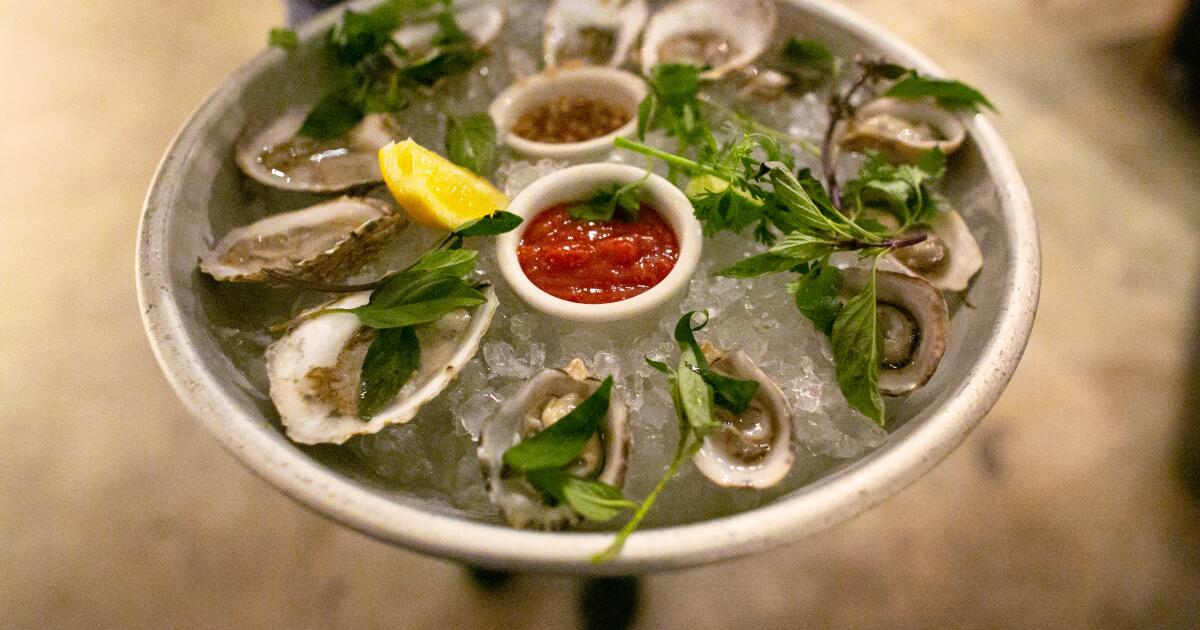
County public health officials are recommending the public refrain from consuming all oysters imported from Mexico due to an expanding list of harvest locations listed in warnings from the U.S. Food and Drug Administration.
The number of local confirmed and probable norovirus cases linked to tainted oysters from Mexico jumped to 69 Thursday, up 28 from the 41 cases cited late last week. Thus far, none of the infections has been severe enough to require hospitalization.
“The symptoms they’re having are nausea, vomiting, abdominal cramps and diarrhea, sometimes with fever, which is typical for norovirus infections,” said Dr. Mark Beatty, assistant medical director, Epidemiology and Immunization Services for San Diego County.
Rather than attempt to convey to the public which locations and companies have been affected, the public health department instead opted for a blanket prohibition, saying in a statement: “Given the expanding number of harvest locations associated with illness and the potential for other sites to be involved, County Public Health is recommending against the use of all oysters imported from Mexico at this time,” a statement issued Thursday afternoon said.
The FDA first warned on Thursday, Jan. 11, that restaurants should not serve, and the public should not consume, raw oysters harvested by Sociedad Acuicola GolPac from Bahia Salina in Sonora, Mexico, on Dec. 18 or 27, 2023.
An expanded warning published Wednesday states that oysters from a second company, Acuacultura Integral De Baja California SA de CV, harvested from Laguna Manuela on Dec. 15,16 and 23, also should be discarded. Oysters harvested from Laguna De Guerro Negro harvested on Dec. 15, 16, 19 and 29 are also included.
Initially, those who got sick were said to have eaten at the Fish Shop chain of seafood restaurants and at Carlsbad Aquafarm, though 20 of the 28 cases announced Thursday afternoon were said to have been eaten at “other food venues,” though specific locations were not immediately available.
Carlsbad Aquafarm, which is known for growing its own local crop of oysters in Agua Hedionda Lagoon, issued a statement late last week clarifying that it had purchased oysters harvested from Bahia Salina and they were served at its farm tours and local restaurants on Dec. 28.
“These oysters were not cultivated at Carlsbad Aquafarm, as our inventory of locally grown oysters had been depleted due to high demand,” the company’s statement said.
Heather Buonomo, director of environmental health and quality for the county, said Thursday afternoon that the local seafood supply chain is working to make sure that remaining oysters harvested in Mexico are not served to patrons.
“We’ve sent multiple notifications to all of our permitted food facilities in the region to provide them information on the norovirus outbreak and the associated oysters,” Buonomo said. “We have made direct contact with facilities that we know have had a reported case of illness and, in addition to that, we heard from California Department of Public Health that the distributors of the oysters have contacted the companies they sold the oysters to, ensuring they were aware of the advice to discard them.”
Thus far, the director said, no reason for the oyster contamination has been identified.
Dehydration is the main risk associated with norovirus symptoms. The county urged anyone who thinks they have been infected to contact their health care provider. Those who want to report getting sick after eating an oyster at a local restaurant or purchasing oysters from a wholesale distributor can call (858) 505-6814 or send an email to fhdepi@sdcounty.ca.gov.







